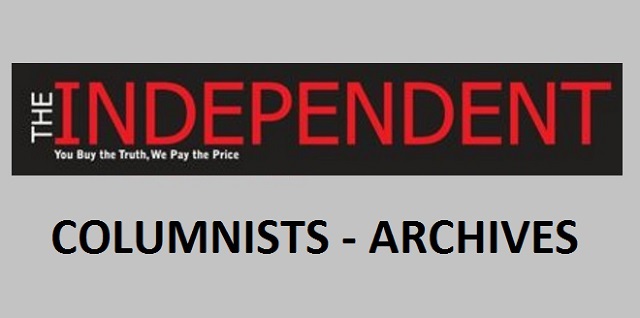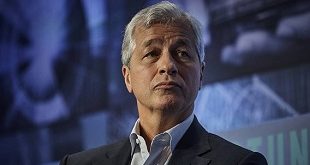
By Andrew M. Mwenda
In February 2007, I was invited by the Institute for African Development at Cornell University in the United States to give a lecture. My presentation was on’The in-humanitarian consequences of humanitarian intervention; a case study of the UN humanitarian intervention in Rwanda in 1994.’ The lecture was drawn from a chapter in a book I was writing (currently on hold) on the unintended, yet negative consequences of Western assistance to Africa, including humanitarian aid.
I delivered my lecture on the afternoon of February 1 after which I was hosted to dinner by the director of the institute, Prof. Nicolas van de Walle. I felt honoured because I developed respect for de Walle after reading his book African Economies and the Politics of Permanent Crisis in 2002. I had then searched him on the web, got in touch with him at Michigan State University where he was at the time and invited him on my radio show on Monitor FM now KFM, a request he accepted.
A number of lecturers on African studies and students from Africa were invited to the dinner. Our discussion turned to the subject of my presentation. I told Prof. de Walle that in the early 1990s, the officials in the government of France used the French state to actively aid the genocide in Rwanda. He asked how. I told him they had helped train the Rwandan army, sometimes commanded it into battle, then supplied it with weapons in contravention of the UN arms embargo on the government of President Juvenal Habyarimana, and provided the regime with moral, financial and diplomatic support, all of which were vital in helping that government carry out genocide.

After listening to me, de Walle said that he cannot believe that a’civilised’ government and a’disciplined’ army like that of France could do such a thing. I tried to convince him with more evidence but could not. Then a Rwandan student at the university came to my rescue. He told us that during Operation Turquoise (the French humanitarian effort that was largely a way of getting the genociders to escape) his family and other Tutsi happened to be in the French controlled zone. French army officers allowed the Hutu militia into the camp and killed all Tutsis including his family.
It was a tense moment. Prof. de Walle (a Belgian citizen who grew up in the USA) expressed his sympathy to the young student but held his ground that’civilised France’ could not aid and abate genocide. I realised that continuation of the discussion would lead us to a cultural/racial battle of’us’ versus’them’ and dropped the debate. But it was an important learning experience for me because in such matters, many people of European descent are likely to take de Walle’s position although not with the frankness and honesty with which he did.
This lesson was brought to me quite vividly when the German government arrested Ms Rose Kabuye, a chief of protocol of the Rwandan government as she arrived in the country ahead of Rwandan President Paul Kagame’s visit. The arrest was on the basis of warrants issued by the French government against the very Rwandan leaders who helped end the genocide in that country in 1994. This strange twist of irony'” of the architects and perpetrators of genocide arresting those who under great sacrifice ended it'” has gone largely unchallenged by the international community for cultural reasons.
What is the crime of the accused? That in April 1994, RPF shot down the plane carrying Habyarimana on which there were French crew. Why is France seeking to avenge the death of a president who organised genocide of one million of his own citizens? Would France prosecute President George Bush if American planes killed Osama bin Laden in an air raid just because some French citizens working as his hostesses happened to be with the al Qaeda leader in his hideout? Let us not forget that bin Laden has not yet taken away even 10,000 lives. An important question should be: What were French citizens doing with a mass murderer?
I have never even wanted to listen to a defence from the RPF that they did not kill Habyarimana. It would be extremely painful for me to listen to victims of genocide defend themselves against allegations that they killed a person who sought to exterminate them. I know that every Jewish or even non Jewish organisation would have been hailed as heroes had they killed Adolf Hitler. That France can force the RPF leaders into a position of criminals and other European nations acquiesce is an important lesson about Western pretentions about our shared humanity.
I strongly believe that whoever killed Habyarimana did something good because the former Rwandan president was the worst mass murderer of the 20th century. His killing efficiency (one million people in 100 days) makes the Third Reich (six million people in 12 years) look incompetent. Sadly, the likely killers don’t deserve the praise themselves because it seems Habyarimana may have been killed by the extremist wing of his own party in order to kick off the genocide earlier than he had wanted. Therefore, the difference between him and his extremist allies was not on the act of genocide but the timing of its outbreak.
Some claim that it is the killing of Habyarimana that sparked off the genocide. Yet as early as January 1994, the UN peace keeping mission to Rwanda had informed the headquarters in New York that the government had built a capability'” in both human training and weapons stockpiling'” to kill 1,000 people every 20 minutes. The president of Habyarimana’s political party'” the MNRD, Mathieu Ngirumpatse, was the man in charge of this deadly operation. Hutu militias had certainly not been trained for a tea party.
It would be wrong to think that France issued these arrest warrants because it wanted to conceal its own involvement in the genocide, or even distract world attention from it. Far from that! Its role has been documented in a number of accounts including the book, Shake Hands with the Devil, by the French-speaking Canadian commander of the UN mission to Rwanda at the time, Gen. Romeo Dallaire, and in a 1996 BBC documentary The Bloody Tricolour on its Panorama programme.
 The Independent Uganda: You get the Truth we Pay the Price
The Independent Uganda: You get the Truth we Pay the Price


